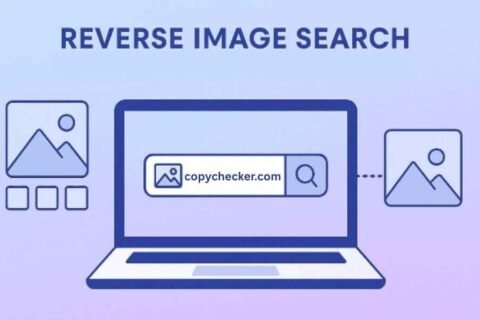Table of Contents
- Introduction
- Overview of Funding Sources for Entrepreneurs
- Self-Funding: Tapping into Personal Resources
- Bootstrapping with Savings and Assets
- Reinvesting Business Profits
- Friends, Family, and Angel Investors
- Leveraging Personal Networks
- Angel Investment Groups and Platforms
- Crowdfunding and Peer-to-Peer Lending
- Crowdfunding Platforms for Entrepreneurs
- Peer-to-Peer Lending Options
- Traditional Financing Options
- Bank Loans and Lines of Credit
- Small Business Loans and SBA Programs
- Venture Capital and Private Equity
- Early-Stage Venture Capital
- Growth Equity and Late-Stage Funding
- Conclusion
- Summary of Key Funding Strategies
- FAQ
- Common Questions on Entrepreneurial Funding
Introduction
Best Funding Sources for Entrepreneurs
Getting the right funding is key for your business to grow and succeed. But with many options, it’s hard to know where to start. We’ll look at the best funding sources for entrepreneurs. We’ll find the hidden gems that can help your business grow.
Key Takeaways
- Understand the different funding options available to entrepreneurs, from self-funding to venture capital.
- Learn how to leverage personal networks and angel investors to secure early-stage financing.
- Discover the advantages and challenges of crowdfunding and peer-to-peer lending for your business.
- Explore traditional financing options like bank loans and SBA programs, and how to navigate the application process.
- Gain insights into the world of venture capital and private equity, and how to position your business for this type of funding.
Self-Funding: Tapping into Personal Resources
Starting a new business can be tough. One way to get money is by self-funding. This means using your own savings, assets, and profits to start your business. You keep full control and don’t need outside investors.
Bootstrapping with Savings and Assets
Using your savings and assets can help you get your business started. You can use your home equity or retirement savings. This way, you avoid high-interest debt and keep your business small at first.
Only about 25% of lenders give out startup loans, says the Small Business Administration. So, for new business owners, self-funding is essential.
Reinvesting Business Profits
When your business makes money, you can put that money back into it. This is called reinvesting. It helps you grow your business without taking on more debt or losing control.
Many big companies started small, like Apple and Dell. They used self-funding to grow and succeed.
Self-funding gives you control and flexibility. But, it might limit how much money you can make available. Still, it’s a good way to test your business idea and build a strong base. It helps you stay focused on taking risks and making smart choices.
Friends, Family, and Angel Investors
Many entrepreneurs start by asking friends and family for money. They are often the first ones to help out. This support is key in the early days of starting a business.
Friends and family usually give between $10,000 and $150,000. On average, they give about $23,000. They put in around $60 billion a year into startups. This is a big help for new businesses.
Leveraging Personal Networks
Talking to people you trust can be very helpful. They can give money, advice, and support. Friends and family rounds are quick, usually finishing in two months.
Angel Investment Groups and Platforms
Angel investors are another good choice for funding. They give between $100,000 and $2 million. Websites like AngelList and Gust help connect with these investors.
Angel investors can give a lot of money and advice. They might value your company at $1 million to $3 million. Typically, they would like 10% of your business.
| Funding Source | Average Investment | Average Startup Valuation | Closing Time |
| Friends and Family | $23,000 | $0.5 million – $1 million | 2 months |
| Angel Investors | $75,000 | $1 million – $3 million | 3-6 months |
Getting money from friends, family, and angel investors can be hard. But, it’s worth it for the benefits. Using your network and looking into angel investments can help your business grow.
Entrepreneurs: Crowdfunding and Peer-to-Peer Lending
In the world of business, crowdfunding and peer-to-peer lending are new ways to get money. They help startups and small businesses get the funds they need. These new ways are changing how companies get money.
Crowdfunding sites like Kickstarter and Indiegogo help entrepreneurs test their ideas. They let people give small amounts of money for rewards or a share of the company. This not only brings in money but also builds a community that supports the business.
Peer-to-peer lending sites, like Funding Circle and Streets hares, connect small businesses with people who want to lend money. They use technology to check if a business can pay back the loan. This can be cheaper than traditional bank loans.
| Feature | Crowdfunding | Peer-to-Peer Lending |
| Funding Model | Raising funds from multiple backers in exchange for rewards or equity | utilizing an internet platform to get loans from private investors |
| Repayment | No repayment required, backers receive rewards or equity | complete loan payback, including interest and other costs |
| Application Process | Requires a compelling campaign to attract backers | Data-driven application based on creditworthiness and business metrics |
| Funding Timeline | Longer campaign and funding period | quicker response, frequently a week after application |
| Suitability | Favors product-based businesses with unique and marketable offerings | Suitable for service-based small businesses seeking loans |
Crowdfunding and peer-to-peer lending give entrepreneurs more ways to get money. They let entrepreneurs turn their ideas into reality. These new ways could change the business world, making it easier for companies to grow and create jobs.
Traditional Financing Options
Entrepreneurs have many ways to get funding, like bank loans and lines of credit. They can also look into small business loans and SBA programs. These options help with starting, growing, or expanding a business. But, they have their own rules and needs.
Bank Loans and Lines of Credit
Entrepreneurs often choose bank loans and lines of credit for funding. Banks want a strong business plan, good credit, and sometimes collateral. Getting a bank loan can be hard, but it offers good rates and flexible payback plans.
Small Business Loans and SBA Programs
Small business loans and SBA programs are great for entrepreneurs. Compared to regular bank loans, they are simpler to obtain, which benefits startups and small businesses.. SBA loans are for many things, like buying equipment or getting cash to run the business. It’s important to build a good business credit to get these loans.
| Financing Option | Credit Score Requirement | Interest Rates | Repayment Terms |
| Bank Loans | Minimum 625 FICO | 10% – 30% | 1 – 10 years |
| SBA Loans | Minimum 690 FICO | 6% – 13% | 5 – 25 years |
| Online Lenders | Minimum 660 FICO | 10% – 79% | 1 – 5 years |
Venture Capital and Private Equity
Entrepreneurs looking for big investments might consider venture capital and private equity. Venture capital firms give money to startups that could grow a lot. They want a share of the company in return. Venture funding at an early stage facilitates rapid business growth.
Growth equity and late-stage funding come from private equity firms. These are for companies that are already doing well. They want to grow even more. These investors also offer valuable advice and connections.
Early-Stage Venture Capital
Venture capital firms put in $10 million or less into startups. They look for companies with a lot of growth potential. These companies are new or have been around for less than two years. They might not have enough money or can’t get loans from banks.
Growth Equity and Late-Stage Funding
Private equity firms invest $100 million or more in companies. They focus on companies that are already doing well and want to make more money. These firms often take full control of the companies they invest in.
| Venture Capital | Private Equity |
| Invest $10 million or less in startups | Invest $100 million or more in mature companies |
| Focus on high-growth potential | Focus on increased revenue and control |
| Invest in 50% or less of equity | Acquire 100% ownership |
| Often invest in technology, biotech, and clean tech sectors | Invest across various industries |
Venture capital helps new businesses grow early on. It makes them ready for private equity buyers or investment banks. Private equity firms look to make a profit by selling companies they’ve improved after a few years.
Conclusion
Entrepreneurs have many ways to get money for their businesses. They can use their own savings or profits. They can also ask friends, family, or angel investors for help.
Startups are changing old industries with new ideas. They have a fresh way of thinking. Knowing how to get funding is key for them. They can look at crowdfunding, loans from people like them, or big investments.
To succeed, entrepreneurs need to use many ways to get money. This mix of funding helps them grow in a fast-changing business world. It lets them make a big difference in their field and communities.
FAQ
What are the main funding options for entrepreneurs?
Entrepreneurs can get money from many places. This includes using their own money, getting loans from people they know, and using crowdfunding. They can also look into bank loans or get investments from venture capital.
How can entrepreneurs self-fund their businesses?
Entrepreneurs can fund their businesses by themselves. They can use their own savings and assets. They can also put profits back into the business to grow.
How can entrepreneurs leverage their personal networks for funding?
Entrepreneurs can get money from people they know. They can ask friends, family, and angel investors for loans or to invest in their business. These investors might also help with advice and guidance.
What are the benefits and challenges of crowdfunding for entrepreneurs?
Crowdfunding lets entrepreneurs share their ideas with many people. They can receive little sums of money from numerous sources. It’s good for testing ideas and selling products early. But, it takes a lot of work to market and engage with the community.
What are the traditional financing options available to entrepreneurs?
Entrepreneurs can look into bank loans, credit lines, and small business loans. The SBA has programs too. For these loans, it’s critical to have both a solid business plan and a high credit score.
How can venture capital and private equity firms support entrepreneurs?
Venture capital firms give money to startups that are growing fast. They invest a lot in exchange for a part of the company. This can help entrepreneurs grow their businesses quickly. Private equity firms help more established companies grow even more.













































